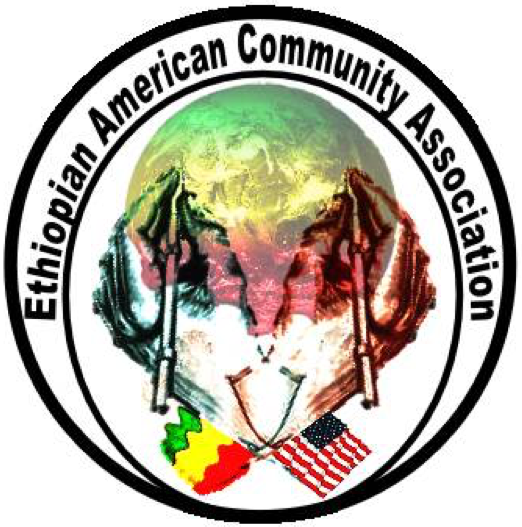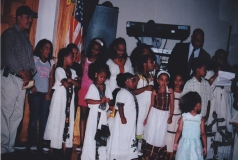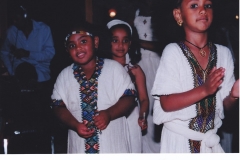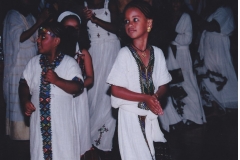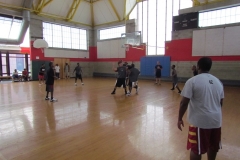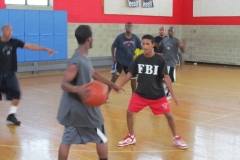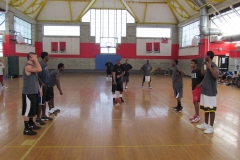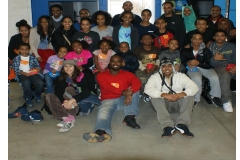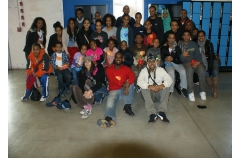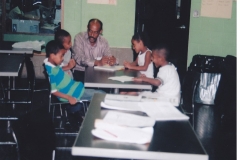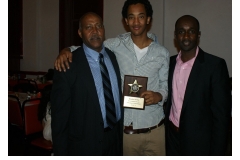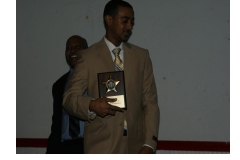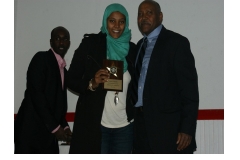
Mature players are welcome to join in too!
APPROACH
EACA has created “Ethiopian American Grassroots Youth Program,” a unique initiative that engages East African young people between the ages of 6 and 18 in bilingual classes, academic tutoring sessions, recreational activies, and leadership development activities. The program is a safe space where young people can build meaningful relationships and develop life skills. EAGYP is offered every Saturday at the Area 4 Youth Center in Cambridge from 10am to 1pm, and currently engages nearly 30 young people each week. During this time, volunteer teachers offer classes on Amharic and Tigrinya languages, one-on-one homework help, group tutoring sessions, and sports activities.
While the program is based in Cambridge, most of the participants live in the Greater Boston region. The program’s main goals include: (1) Young people will develop a better sense of themselves, their culture, and their community; (2) Young people will improve their school and academic performance; and (3) Young people will obtain resources and support needed to lead happy and healthy lives.
TARGET POPULATION
Our target population is Ethiopian-Americans who reside in Boston, Chelsea, and Cambridge. There are 20,000 Ethiopians in the state of Massachusetts, whose children are waiting to be served by our burgeoning community. Roughly 90% of the population resides in the low-income neighborhoods of Chelsea, Roxbury, Dorchester, and North Cambridge. While our constituents are from diverse ethnicities with different cultural and linguistic backgrounds, many of them share the same legacy of violence, death, poverty, and displacement. Fleeing civil war, economic dislocation, environmental degradation and/or ethnic persecutions at home, the majority of our refugees arrive in the United States sharing a similar emotional and psychological profile. Among the primary needs frequently expressed by this community we find:
- a lack of academic achievement, including a low success rate in graduating from high school and low college enrollment;
- a quest for strategies with which to bridge the “digital divide,” especially in academic and domestic environments where there is a generation gap between parent(s)/guardian(s) and our students in the understanding and employment of technology;
- insufficient preparation for entering the workforce;
- an inability to adjust well socially to the American environment;
- a lack of involvement in, or understanding of, the political processes of American participatory democracy;
- consistent need for cross-cultural, intergenerational dialogue and conflict-resolution skills;
- illiterate parents but eager and ready to learn;
- chronic depression and hopelessness.
It is precisely these indispensable civic attributes that Ethiopians in Boston, Chelsea, and Cambridge are significantly lacking. Civil war and severe periodic economic downswings, if not hardships, often disrupt formal schooling in African countries. Oftentimes, our African refugees/immigrants are women with children, usually from middle to high school age. Many have received little education in their homelands and illiteracy rates are high.
Regardless of national origin, our youth face similar educational inequities. Many of our youth have had minimal education while others have never been to school until their arrival in the Boston public school system. Because school placement is based on age, African youth struggle to keep up with limited educational experience and borderline English competency in high school. Declining MCAS scores and the attendant problem of graduating high school are additional areas of need the community hopes to address in plans currently being prepared for our next stage of operation. Between students and adults there are often tenuous lines of communication. Past experiences and cultural norms in the target population frequently combine to produce a marked resistance to knowledge of, or interest in, civic engagement. Our collaborative works from the premise that participation in the political process is a right and responsibility, and that we can be particularly effective in assisting new arrivals to negotiate this cultural impasse. Additional areas of concern among our adolescents include unfamiliarity with employment procedures and application processes. Often there is a palpable need for more attention to the development of conflict resolution and people skills in an urban, multi-cultural environment. Outdoor activities are bound to help them to interact with one another as the play sports outside of the confines of the classroom and learn how to become leaders and organizers of their communities.
ACCOMPLISHMENTS
EACA has served approximately 70 young people who come in to the youth center programming each week. Past activities include:
- Organized a computer-training program for students and young adults.
- Strengthened and expanded our youth development and recreation program into an after-school program that offers homework help/tutoring, informal group and individual mentoring, dance, sports, games and art activities. We have been successful in promoting good citizenship and healthy decision-making among our youth participants. This has helped to keep our youth out of trouble and the criminal justice system.
- Instituted Ethiopian New Year celebrations. This event has been highly acclaimed by Ethiopians living in Massachusetts, and has served as an opportunity for them to share their experiences and affirm their cultural identity. Held annually since 2008, this event brings together approximately 200 to 260 individuals.
- Taught classes to young people on traditional Ethiopian culture and history, including bi-lingual language classes focused on teaching youth to speak and write in Amharic and Tigrinya.
- Promoted economic self-sufficiency among youth by offering workshops on budgeting, financial aid for college, and establish economic goals.
